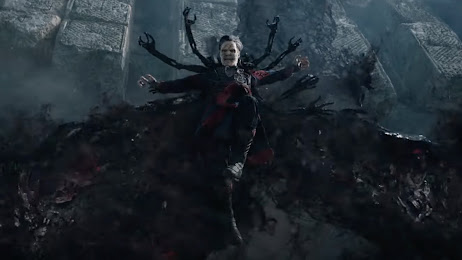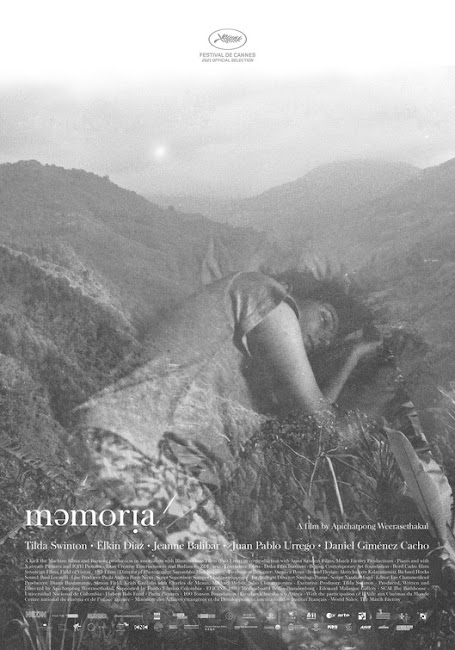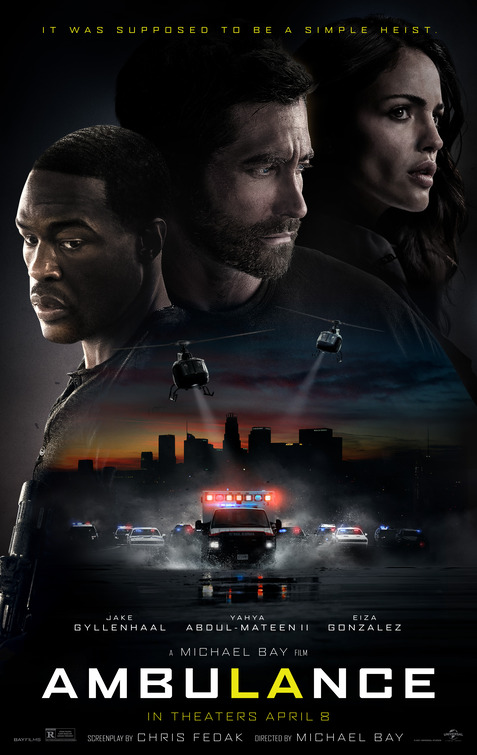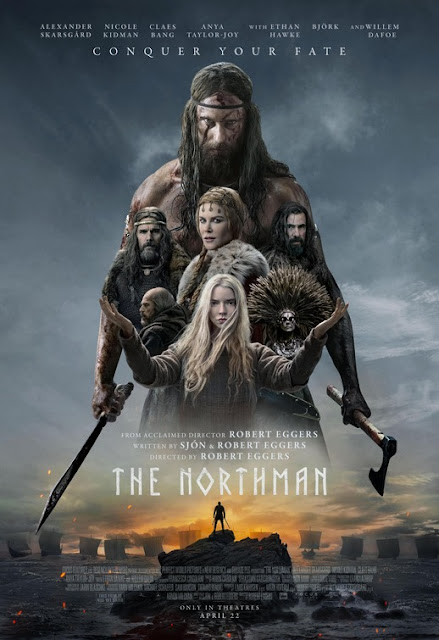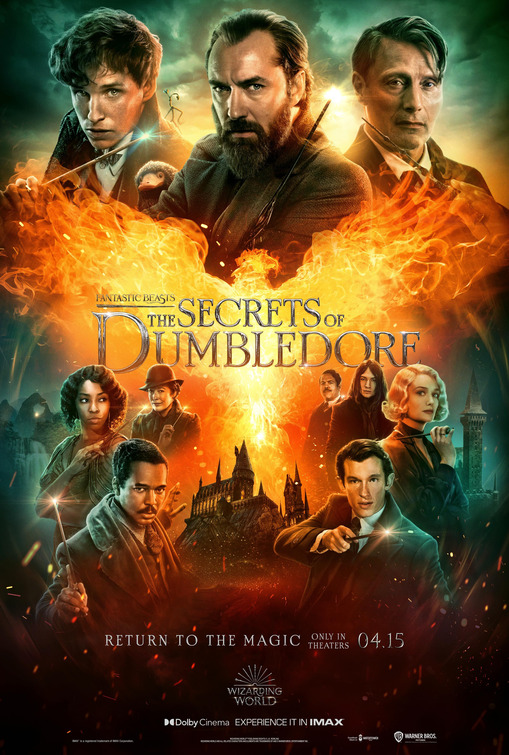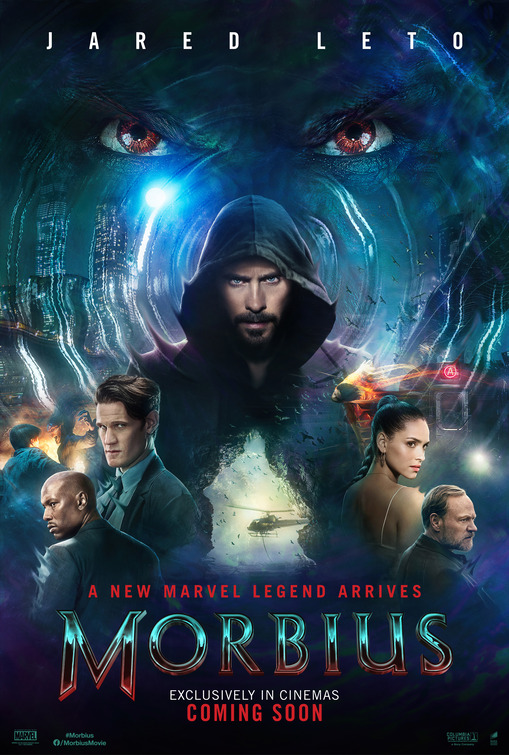 |
| Marcel the Shell with Shoes On is not on this list, but how could I not make this lil' guy the header image?!? |
Boy, it feels weird to be doing this again.
For the first time in three years, I can do a proper
Summer Box Office Predictions column. Knock on wood, we’re going to have a
traditional summertime box office season that starts the first weekend of May
and ends over Labor Day weekend. What a concept. The COVID-19 pandemic erased
summer 2020 entirely and ensured that summer 2021 (save for A Quiet Place:
Part II and Cruella) didn’t start until F9 arrived at the end of
June 2021. Even then, a deluge of movies that offered up new theatrical titles
simultaneously on big streaming services made things feel off-kilter.
So far, though, only Firestarter and Honk
for Jesus, Save Your Soul among this summer’s wide theatrical releases have
announced simultaneous launches on the small screen. The rest of this summer’s
titles are all theatrical exclusives. Granted, it’s not a totally normal summer
still. For one thing, there’s a dearth of comedies. Even compared to the summer
of 2019, which had Good Boys, Stuber, and Long Shot (among
others) all premiering theatrically, there really aren’t any major comedies
dropping in the summer of 2022. August 2022 is also looking shockingly barren
now that The Man from Toronto has hightailed it out of the month. August
is usually where R-rated comedies or sleeper hit horror movies can thrive, but
Hollywood’s continued emphasis on tentpoles means that we won’t have any
potential surprise hits in that month this year.
Still, the slate for summer 2022 does look promising
overall and the resurgence of family and adult women moviegoers throughout
spring 2022 (not to mention the extraordinary sleeper success of Everything
Everywhere All at Once) confirms that it isn’t just superhero movies that
can thrive on the big screen provided that Hollywood, y’know, provides those
titles. It’s doubtful (thanks to that empty August) that summer 2022 can match
the biggest summer box office hauls of all-time, but it should still do fine
for itself.
With that, let’s look ahead at my predictions for the
10 biggest movies at the domestic box office this summer. As in years past, I’m
delivering projections for opening weekend and final gross sums as well as
accompanying analysis on why I think these titles will perform the way they do.
10. Elvis
The biggest advantage Elvis has going for it is
that its distributor, Warner Bros., has no other movies dropping in the first
two months of Summer 2022. The studio can solely concentrate on getting this
title to a sizeable box office gross rather than splits its attention across multiple
titles. The music biopic has a shaky track record to be sure (for every Bohemian
Rhapsody, there’s a Respect), but Elvis Presley feels like a famous
enough figure to attract moviegoers of all ages. Having Tom Hanks around in a
showy supporting role should further sweeten the pot for general audiences.
Back in the summer of 2019, Rocketman opened to
$24 million before legging it out to $97 million. I’d imagine Elvis can
at least do a touch better than that since Presley is so ubiquitous and it’ll
have the full might of the Warner Bros. marketing machine behind it. Let’s say
this one narrowly cracks $30 million on opening weekend and then sticks around
for a while. It won’t be the biggest Baz Luhrmann film ever in North America,
but it’ll be a solid performer and just the kind of adult-skewing film that can
take off once the middle of the summer arrives. That’s the point in the season
where moviegoers begin to crave something that isn’t big and full of
explosions. Elvis could fill that niche nicely.
Projected Opening Weekend: $30 million
Project Domestic Total: $115 million
9. Bullet Train
Since he burst onto people’s radars in May 1991 in Thelma
& Louise, Brad Pitt has managed to appear
in nine live-action movies that cracked $100 million
domestically (not counting his brief cameo appearance in Deadpool 2).
That’s not an expansive club of movies that cracked nine-digits in North
America, but it’s wide enough to suggest it’s not impossible for a new
blockbuster starring Pitt to crack $100 million in this territory. This is
where the new Pitt movie Bullet Train comes into the equation, which
seems poised to be a successful sleeper hit for Sony/Columbia.
Some movies are really complex in terms of the
elements that suggest they’ll be hits. For Bullet Train, it’s quite
simple. The early marketing, including an appealing trailer that debuted on The
Batman, has been eye-catching, and this is the kind of movie people like to
see Pitt in. Plus, it’s debuting the last weekend of July, which means it can
play as the most recent action movie game in town during a surprisingly sparse
August for new theatrical releases. As long as the film isn’t historically
terrible (which could totally happen, of course), Bullet Train seems
like it’s locked and loaded to be a hit despite not being based on source
material that’s already a household name. Who knew appealing concepts and movie
stars could get butts into movie theaters? Those factors should all combine to
make Bullet Train the tenth live-action Brad Pitt film to exceed $100
million domestically.
Projected Opening Weekend: $39 million
Projected Domestic Total: $120 million
8. DC League of Super-Pets
Warner Bros. has a shockingly poor box office track
record for animated movies considering it’s the studio behind Bugs Bunny and
Daffy Duck. The LEGO Movie and Happy Feet were unquestionably
hits, but then there’s The Ant Bully, Storks, Smallfoot,
and the last two LEGO Movies. That erratic box office track record means
that their newest family-friendly cartoons enter the marketplace with more
skepticism in terms of box office prospects than, say, the newest Illumination
feature. But if anything could manage to be a solid performer for the studio,
it’d be DC’s League of Super-Pets.
Based in the world of DC Comics and even using
characters like Superman and Batman in prominent supporting roles, Super-Pets
focuses on a gaggle of misfit pets who get superpowers. A premise that probably
got some Warner Bros. executive salivating at the thought of a cross between
the Marvel Cinematic Universe and The Secret Life of Pets, this one also
comes packed with the combined weight of Dwayne Johnson and Kevin Hart in the
lead roles. The popularity of DC properties, Johnson and Hart’s reliability in
family-friendly fare, and a late summer release date where it won’t have to
face much competition should give this one a solid boost and make it a welcome
animated movie hit for Warner Bros.
Projected Opening Weekend: $34 million
Projected Domestic Total: $130 million
7. Nope
Jordan Peele’s first two directorial efforts each
managed to exceed $160 million domestically, both incredible feats for original
R-rated horror movies. Look for that streak to continue with Nope, a
mysterious new horror film that’s already getting buzz thanks to a swam of
eye-catching teasers and posters. We have a few horror films lined up for this
summer, but none are even close to Nope in terms of how high-profile
they are or the filmmaking pedigree they come saddled with.
Intriguingly, Nope was filmed with IMAX cameras
and its marketing is emphasizing an even greater sense of scale than Us,
which could make this even more of a must-see event for moviegoers. Unlike the
last two Peele movies too, Nope will take advantage of summer weekdays
to further juice its box office haul. If reviews turn out divisive or negative,
a film like this without a big brand name to stand on could end up flaming out
real quickly at the box office. But if Nope
resonates with people anywhere near at the level of Peele’s previous movies,
then this auteur can expect his third consecutive box office hit, with there
being a lot of potential here for Nope to go even higher.
Projected Opening Weekend: $75 million
Projected Domestic Total: $180 million
6. Minions: The Rise of Gru
Back in 2017, the Despicable Me franchise
demonstrated its first instance of box office vulnerability with Despicable
Me 3. That sounds weird to say for a movie that grossed $1 billion
worldwide on an $80 million budget, but domestically, the films $264 million
haul was a sharp 41% decline from the North American gross of Despicable Me
2. It was also down 28% from the domestic gross of Minions just two
years earlier. This franchise appears to have peaked domestically in 2013, and
even when The Rise of Gru was set to drop in July 2020, it was bound to
experience further decline.
However, the COVID-19 pandemic delayed the film an
additional two years, meaning it’ll now arrive a whopping five years since the
last Despicable Me outing and seven years since the original Minions.
The general public has doubtlessly cooled on these characters in that timespan
and intense competition from other family movies like Lightyear and League
of Super-Pets won’t help. The enduring appeal of those Minions will
probably keep this one above the domestic gross of The Secret Life of Pets 2
and it may be able to just squeak past $200 million if Universal can deliver
one of its no-holds-barred marketing campaigns. Minions: The Rise of Gru
will be far from an unprofitable venture but it will be another sign that the Despicable
Me saga is now what it was a decade ago.
Projected Opening Weekend: $65 million
Projected Domestic Total: $205 million
5. Top Gun: Maverick
Did you know Tom Cruise has never starred in a movie
that made over $235 million domestically? It’s true. The 2005 blockbuster War
of the Worlds is still the man’s highest-grossing feature with $234 million
while none of the Mission: Impossible titles have exceeded $220 million
in North America. This means there’s a ceiling in terms of how high Tom Cruise
features can go. That having been said, there’s more reasons to be optimistic
than pessimistic, at least at this juncture, about the box office prospects of Top
Gun: Maverick, the latest Cruise vehicle.
For starters, it’s a legacy sequel, an incredibly
popular mold of the blockbuster right now. For another, it see’s Cruise
returning to one of his most iconic roles. Top Gun isn’t Star Wars,
but it’s still a popular movie, and the nostalgia associated with this feature
should give it some solid rocket fuel. The lack of big blockbusters beyond
Jurassic World in June should also allow it hold better than your average
Memorial Day blockbuster. Plus, Paramount Pictures has been on a hot streak
this year successfully launching everything from Scream to The Lost
City to Sonic the Hedgehog 2. Maverick seems poised to keep the good
times rolling. It won’t dethrone War of the Worlds to become the biggest
Cruise movie ever domestically but expect this long-awaited Top Gun follow-up
to still be a sizeable box office winner.
Projected Opening Weekend: $79 million
Projected Domestic Total: $225 million
4. Lightyear
Believe it or not, it’s been three years since a PIXAR
movie had a conventional theatrical release uninterrupted by the pandemic. Onward
got its theatrical run cut abruptly short by the pandemic, while Soul, Luca,
and Turning Red all went straight to Disney+. But now PIXAR has a sequel
starring a white guy on its slate, so I guess it can’t be dumped to streaming. Lightyear
comes courtesy of the Toy Story franchise, which has achieved the
remarkable feat of constantly improving on its predecessor in terms of domestic
and worldwide grosses. Each Toy Story has been bigger than the last,
though Lightyear will probably put an end to that. That’s less because Lightyear
is guaranteed to be a cataclysmically “bad” movie and more that it’s a
spin-off, those tend to always do weaker box office than their predecessors.
Carrying over only one character from the Toy Story
franchise, not to mention feeling less like an organic extension of the story
of Buzz and Woody, will keep Lightyear a bit grounded in terms of box office.
However, otherwise, the movie appears good to go in terms of box office
prowess. 8 of the last 10 PIXAR movie to open in the summer ended up grossing
over $235 million domestically, with the only two exceptions being Cars
sequels. Something connected to the Toy Story saga that also serves as
the first big-animated kids movie of summer 2022 is bound to keep that box
office hot streak alive. This won’t be the next Toy Story 4 at the box
office, but Lightyear should have no problem being another summertime
hit for PIXAR.
Projected Opening Weekend: $95 million
Projected Domestic Total: $325 million
3. Thor: Love and Thunder
Moviegoers have finally gotten their first glimpse at Thor:
Love and Thunder and it looks like a lot of fun. It also looks like just
the kind of teaser that’s bound to draw the attention of moviegoers. The
visuals look stunning and there’s a good balance between the old and the new
here. Thor, Valkyrie, and Korg are all back, but there’s also lots of new
locations to explore while the Guardians of the Galaxy are showing up for the
first time in a solo Thor film. Then there’s the big final moment of the
teaser depicting Natalie Portman’s Jane Foster returning with a hammer as the
new version of Thor.
This teaser is all people have to go on regarding Thor:
Love and Thunder right now, but it’s easy to see why Disney/Marvel
marketers think that’ll be enough to get people into the theater. By far the
biggest title set to launch in July 2022, Thor: Love and Thunder looks
poised to have a strong box office run, especially given the positive reception
to Thor: Ragnarok and Thor’s increased exposure after being a lead
character in the last two Avengers movies. The latter appearances will
doubtlessly help this score an even bigger box office haul than Ragnarok,
though how high it goes will depend on the rest of its marketing campaign and
its eventual critical reception. For now, though, it looks pretty easy to
determine that Thor: Love and Thunder will be another big box office hit
for the God of Thunder.
Projected Opening Weekend: $165 million
Projected Domestic Total: $465 million
2. Jurassic World: Dominion
Though it didn’t inspire a massive impact on pop
culture, Jurassic World: Fallen Kingdom proved to be a remarkably
powerful beast at the box office. A dropoff from the box office of 2015’s Jurassic
World was inevitable, which meant Fallen Kingdom fell 36% from its
predecessors North American box office haul. However, a $417 million domestic
total was still nothing to sneeze at and made it the second-biggest title ever
for Universal in this territory. Expect Jurassic World: Dominion to improve on
the domestic box office performance, if only narrowly, primarily thanks to the
presence of key Jurassic Park cast members and the promise of this being a
“finale” to the Jurassic World saga.
The importance of the presence of actors like Sam
Neill and Laura Dern in leading roles to Dominion’s box office prowess can’t be
underestimated. That defines the film in the eyes of moviegoers as being right
in line with lucrative legacy sequels like The Force Awakens. Plus, a mid-June date
worked out like gangbusters for the last two Jurassic World movies. Much like
with those other two installment, opening here allows Dominion to exploit
Father’s Day weekend and function as the only big blockbuster for a whole
month. Expect that craft piece of scheduling to help Dominion score one of the
biggest box office hauls of the year, though it’s doubtful it comes close to
the domestic box office heights of Jurassic World from 2015.
Projected Opening Weekend: $160 million
Projected Domestic Total: $450 million
1. Doctor Strange in the Multiverse of
Madness
First of all, can you believe Disney has only released
one new theatrical release (Death on The Nile) in the first four months
of 2022? Right now, A24 has put out more wide releases in this year than
Disney. That’s bonkers. The COVID-19 cinematic landscape is full of unexpected
wonders.
Anyway, Disney’s getting back into the blockbuster
game with Doctor Strange in the Multiverse of Madness, which is only the
fourth theatrical-exclusive title (exempting the Fox movies) to be released by
the Mouse House since the pandemic began. Multiverse of Madness already looks
poised to be a triumphant box office performer thanks to strong advanced ticket
sales and a rampant marketing campaign that’s put the movie on the forefront of
the pop culture landscape. The only question now is how high it goes.
Hitting the $260 million debut of Spider-Man: No
Way Home will be impossible since that film was a unique Avengers sized
crossover event. Seeing Doctor Strange and Scarlet Witch work together is not
at the same level of the prospect of watching Alfred Molina’s Doc Ock duke it
out with Tom Holland’s Spider-Man. However, the sky is otherwise the limit
here. The last few summer kickoff Marvel Studios movies all opened above $150
million save for Guardians of the Galaxy Vol. 2 (and that barely missed it with
a $147 million debut), so that’s the basement here. Getting above the $179
million debut if Captain America: Civil War looks likely at this
juncture, and even the $191 million bow of Avengers: Age of Ultron looks
like it could get toppled.
Here’s the question I’ll wonder aloud here; could Multiverse
of Madness score the biggest May opening weekend ever? That record still
belongs to the $207 million bow of The Avengers from 2012 (it’s currently the
oldest movie to hold a monthly opening weekend record). It’s not hard to
imagine Multiverse of Madness going higher than that, but it doesn’t need to
hit such extraordinary numbers to be a hit. Let’s for now say it’ll open in the
same range as Age of Ultron and, per usual for an early May Marvel Studios
project, a domestic total that’s about 2.35-2.5 times its opening weekend. That
would be one heck of a way to kick off the summer 2022 box office, no question.
Projected Opening Weekend: $190 million
Projected Domestic Total: $465 million












